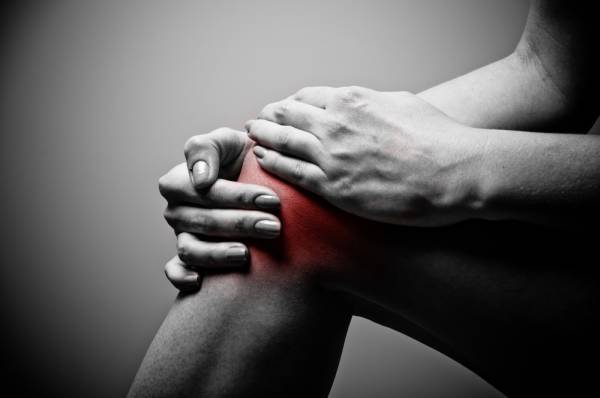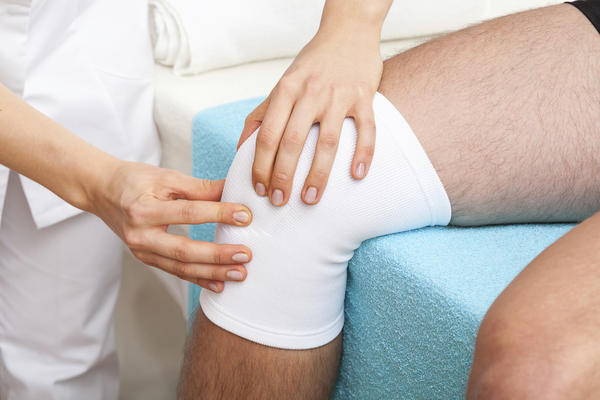After knee surgery the rehabilitation and recovery process play a crucial role in helping you get back on your feet and to a healthy, active lifestyle.
Of course all individuals differ in recovery time and processes, so depending on your surgery it is critical to follow the guidelines provided to you by your health care team and surgeon. In addition to following the advice given, by following a few simple principles it is possible to avoid complications and recover with the best possible outcomes from your procedure.
Managing Swelling
It’s likely that you’ll experience some swelling for weeks following your surgery; it’s a normal part of the healing process. To keep swelling under control, have your leg elevated as much as possible for the first few days following your surgery. Elevation will also reduce bruising and additional tenderness.
Ice packs are also very effective for reducing swelling and inflammation in your knee joint and surrounding tissue. Dr Sterling recommends patients use a ice pack every 2-3 hours for half an hour at a time (when awake) for the first week, post-surgery. And for the second week, use the ice pack 3-4 times per day from half an hour at a time. Get a recommendation from your doctor if you if you see no improvement, or if you think additional icing might help.
Dressing Care
You will leave the hospital with a dressing covering your knee. It’s important to keep your incision clean and dry. Your surgeon will tell you when you can shower or bathe, and when you should change the dressing. It’s important to follow any instructions given to you by your medical team; it will prevent potential complications following your surgery.
At your post-operative visit with Dr Sterling, which normally occurs 12-14 days after the surgery, plasters and dressings will be removed, inspected and redressed if needed.
Managing Pain
After surgery, you will feel some pain. This is a natural part of the healing process for you knee. Your doctor and physiotherapist will be there to reduce your pain, which can even help your recovery speed up.
Medications will also be prescribed for short-term pain relief after your surgery.
Bearing Weight
After any knee surgery, most patients will need crutches or other assistance to walk and move around. Bearing too much or too little weight onto a freshly operated knee can cause problems in your recovery, so it is essential that you refer to your surgeon or physiotherapist to know when it is safe to put weight back onto your knee.
Getting regular exercise
Exercises will play an important role in how well you recover; it will restore motion and strengthen the muscles of your leg and knee. And for most, should be started as soon as you have regained muscle control of your knee, but always follow the recommendations of your health care team.
While exercising can help post-operative pain, it is important to avoid particular positions that can cause damage – this includes squatting, jumping, twisting or kneeling. Walking and excessive exercise makes the knee swell. Depending on your surgery, this is counterproductive to the first aim and therefore should be limited, or done under the direction of your physiotherapist.
It’s important to know that with some knee surgery, particularly a TKR, it is not necessary to get either fit or strong in the early weeks of your recovery, you just need good knee flexion.
In the case that you are seeing a physiotherapist, ensure you do all the exercises they prescribe. These exercises will help strengthen muscles, increase your range or motion and increase blood flow around your knee. This promotes healing and helps drain fluid away from sore tissue.
Physiotherapy
Therapeutic exercise might also play a particularly important role in how well you recover; it will simulate blood flow and reduce pain in your knee and the surrounding areas.
Getting the right support
It’s important to know that you are not alone when it comes to recovering from a knee surgery, and that your surgeon, doctor or physiotherapist can give you advice and tips. So, discuss your level of pain and inflammation with your medical team and report any abrupt changes you might see or feel. At Greg Sterling Orthopaedics you can call Dr Sterling rooms on 1300 478 375 if you have any concerns prior to your first post-operative visit.








